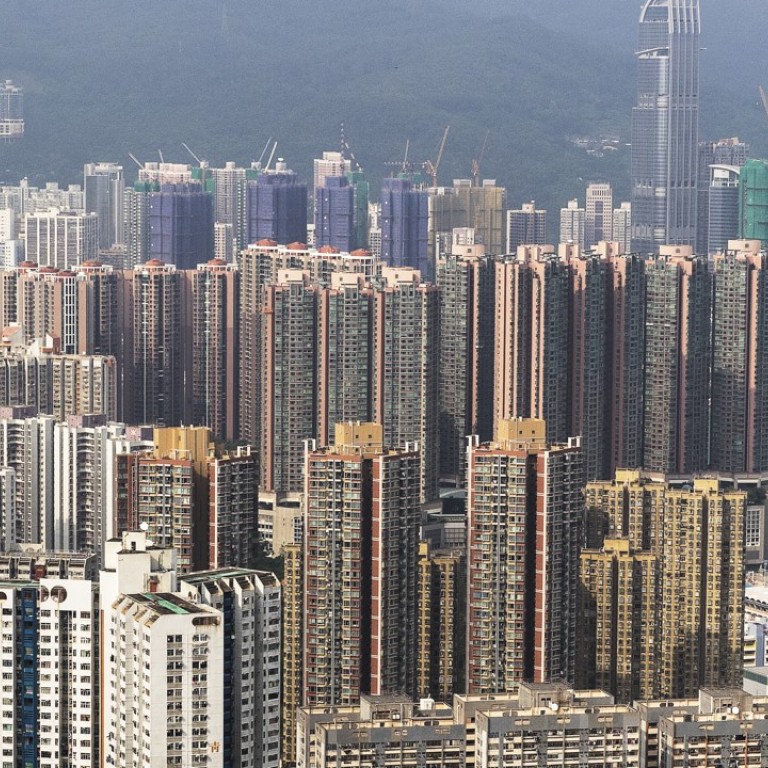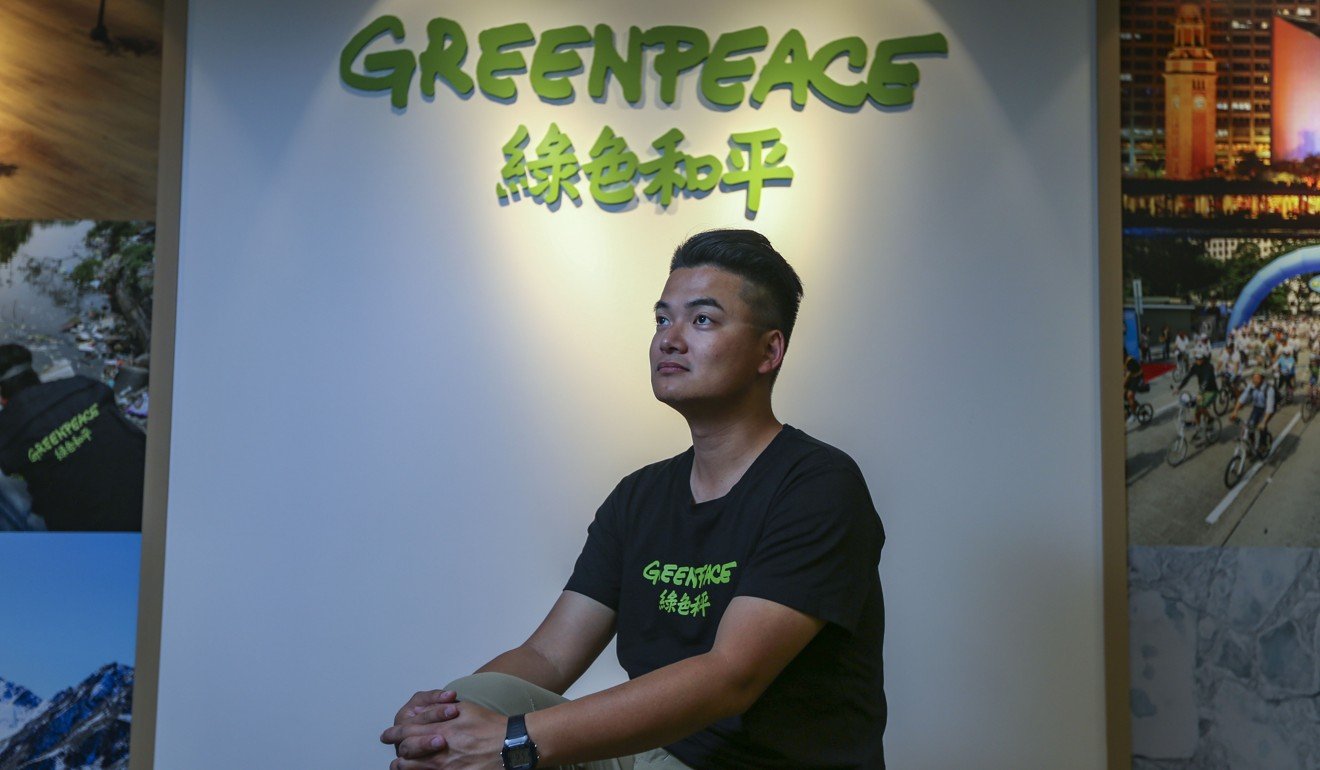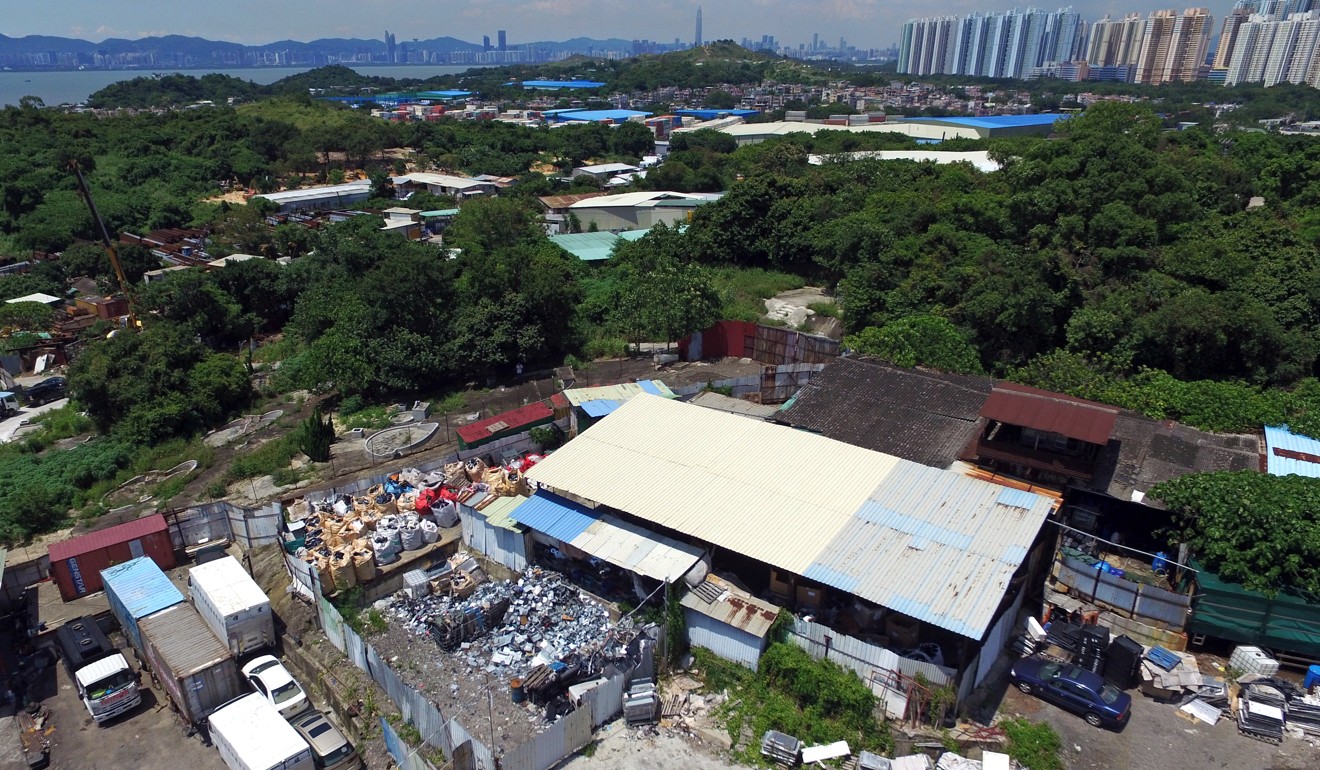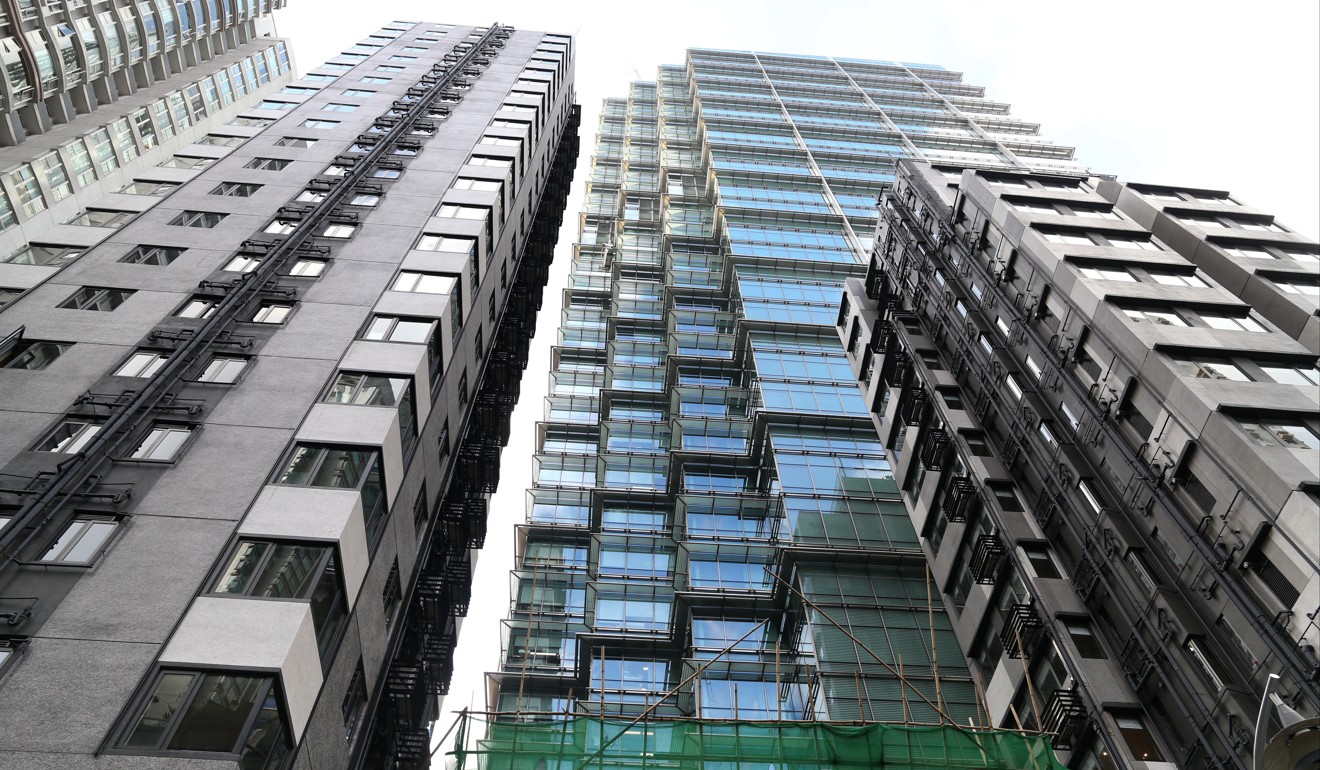
More land for homes on the way, but what about quality of life in Hong Kong, Greenpeace asks
Government is asking residents to choose their preferred options to free up land, but NGO says the exercise fails to address more fundamental problems
Hong Kong’s efforts to find land for new homes will amount to little without long-term solutions to improve quality of life in the space-starved city, environmental group Greenpeace says.
In one of the most important public engagement exercises in years, the Hong Kong government is asking residents to choose their preferred options to free up land, but the NGO says the exercise fails to address more fundamental problems.
Campaigner Andy Chu Kong said the consultation, due to start on April 26, would do nothing to stop property developers building ever smaller flats or prevent illegal construction harming the environment in the rural New Territories.
The government had also not specified how more land would translate into more affordable housing rather than upmarket private developments, Chu said.

Before officials addressed these issues, Greenpeace would not support any move to increase land supply, he said.
The five-month consultation will ask Hongkongers to choose from a list of 18 options. It is designed to free up at least 1,200 hectares to alleviate the city’s housing shortage and drive economic development in the next three decades. The land will be enough to house 342 Taikoo Shings – the estate on Hong Kong Island.
Is liveability a luxury forever out of reach for ordinary Hongkongers?
A government-appointed Task Force on Land Supply is conducting the consultation and will write a report summarising public opinion.
But Chu said a larger land bank would not necessarily create more political will among officials to tackle the long-standing problems of bad urban planning and sky-high property prices.
Hong Kong home prices soar to new high as shortfall points to further rises this year
Old neighbourhoods in urban areas had been wiped out to make way for upmarket housing estates with tiny flats selling for record-breaking prices, Chu said. Meanwhile large tracts of farmland in the New Territories had been decimated to accommodate shadowy, polluting businesses such as electronic waste importers, exporters and processors.

“These problems existed long before the government cry of a land shortage. They are affecting our quality of life,” he said. “If the government hasn’t done anything to fix these issues to date, why should we believe the problems will go away after we have more land?”
Studies have consistently ranked Hong Kong the world’s most expensive property market. And amid the rocketing prices, newly built flats continue to get smaller.
Is land estimate of 1,200 hectares enough to solve Hong Kong’s future needs? No, experts say
Last year 6,900 flats smaller than 430 sq ft were built in the private sector – a 75 per cent increase on the number in 2016.
Some 691 of those flats clocked in at a minuscule 206 sq ft or less. Such properties did not even exist in 2012.

Home prices have risen by more than 490 per cent since 2013, with those for the smaller flats up even more, by 573 per cent.
Wage growth has fallen far behind these increases, rising by only about 60 per cent in the same period.
Results of Hong Kong land supply surveys under fire even before a question is asked
In Hong Kong’s rural north, the government has long been accused of turning a blind eye to New Territories landlords leasing green farmland to businesses generating heavy pollution. The plots eventually degenerate and become brownfield sites despite being close to residential neighbourhoods. Some non-governmental studies have found signs these brownfield sites are growing.
Task force chairman Stanley Wong Yuen-fai conceded that the issues raised by Chu needed to be addressed, but said the government would be in a better position to do so with greater land reserves.
“The shortage of land is a more pressing issue,” he said. “There will only be more flexibility in planning after we have more land.”
Why Hong Kong task force chief should land a medal
Many families waiting for low-rent public housing were crammed into substandard cubicle homes in the private market, Wong said. Getting these residents into public housing as soon as possible was the priority.
But he rejected suggestions officials should reserve more land for public housing and limit private development, saying it would only result in prices and rents shooting up, which would in turn force many families to seek public housing the government was unable to provide.

As of December, the average wait for public rental housing had reached 4.7 years, exceeding the government’s target of three years.
Existing land reserves are only enough to build 237,000 public sector flats by the 2027-28 financial year, officials have said, 43,000 short of the target.
The 18 options for expanding land supply include developing brownfield sites, tapping into farmland reserves held by private developers, building on top of the Kwai Tsing container terminal, developing country parks and reclamation.

